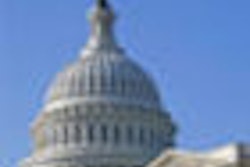
Laying out his first detailed proposal for healthcare reform, U.S. President Barack Obama this week said that dental care should be exempted from a proposed tax on expensive health insurance packages. And in a Nevada forum, he hinted about his general views on dental care.
Although bloggers and talk show hosts have sometimes referred to the House and Senate bills collectively as "Obamacare," until now the president has kept most of his remarks general, leaving the details to Congress. The new proposal offers more details than he has given before. But the White House posted only a summary of President Obama's proposal, not the actual text of a bill.
Pundits have called this a last-ditch effort by the president to get comprehensive healthcare reform through the Senate. After both Houses passed bills last year, Republicans gained enough votes in the Senate to block final passage of a reconciled bill.
President Obama has called on the Republicans to present their own proposal at a healthcare summit on February 25. If no agreement can be reached, the House Democrats may pass the Senate version of the bill, in return for which the Senate could use the budget reconciliation process to amend the bill by simple majority.
Shared ideas
For the most part, President Obama's proposal embodies the common provisions in bills passed in the U.S. House and Senate. It would require everyone to get health insurance or pay a penalty if they don't, and would require insurance companies to accept almost everyone regardless of pre-existing conditions. And it sets up new public exchanges through which insurance would be sold.
“It is my hope that we can include dental care in the various proposals that we're putting forward.”
— U.S. President Barack Obama
President Obama's proposal also reiterates provisions of bills passed in Congress that would increase scholarships and loan assistance for dental students who promise to practice in underserved parts of the country.
The proposal doesn't make any other direct references to oral health. But separately in a Nevada town hall forum on February 19, President Obama implied that he's in favor of expanding dental care to all the nation's children, if not adults.
"It is my hope that we can include dental care in the various proposals that we're putting forward," President Obama said in response to a question from Benjamin Burris, D.D.S., M.D.S., a Jonesboro, AR, orthodontist. "Dental and vision care are very important. Now, I'll tell you that some folks will say we can't afford it. Some states in their Medicaid program cover dental; some states don't. At minimum -- at minimum, I think it's very important that we've got dental care for our kids."
Both the House and Senate versions of healthcare reform legislation would gradually make dental care available to the nation's children. The mandate would start with insurance offered through the exchanges, and spread to all new insurance plans offered outside the exchanges starting in 2013 (in the House version) or 2014 (in the Senate version).
Dentistry for adults, however, would remain optional in the congressional plans, and President Obama's comments at the Nevada forum hinted that he is thinking along the same lines because of budget constraints.
"Because what happens is, if we can keep our children's teeth healthy, then usually that means they've got healthy teeth as adults," the president said. "And if not, oftentimes that actually distracts them and prevents them from learning, because both dental and eye care -- a lot of kids end up being distracted. They can't read the blackboard; they've got a cavity that's been untreated. It's a huge problem. So I would like to see dental care covered. I will tell you that some folks are going to say we can't afford it. At minimum, I'd like to see that our children have the care that they need."
What else is new
President Obama also proposed a new Health Insurance Rate Authority to provide federal assistance and oversight to states in "conducting reviews of unreasonable rate increases and other unfair practices of insurance plans." The proposal doesn't spell out whether this would apply to dental as well as medical insurance.
The proposal also includes new measures to crack down on abuse of Medicare and Medicaid, for example, by comparing a list of Medicaid providers with a list of people who have delinquent taxes.
It also increases the tax credits and subsidies for people who can't afford their own health insurance -- assistance that would most likely apply to purchasing dental care for children, if not adults.
Borrowed from Congress
In most other respects, the president's proposal adheres to the models laid out by Congress. In some cases, it splits the difference where the two bills offer similar provisions at different dollar amounts.
Small businesses would receive $40 billion in tax credits to support coverage for their workers beginning this year. But those with fewer than 50 workers would be exempt from having to provide insurance.
While few dentists are reimbursed directly by Medicare, some seniors pay for dental benefits through private insurance funded by Medicare Advantage. Like both bills in Congress, President Obama's plan would reduce payments to this program, possibly reducing these beneficiaries' abilities to pay for dental care.
In addition to exempting dental insurance from the tax on high-cost health insurance plans, President Obama proposes to delay the tax until 2018 and raise the threshold from $23,000 to $27,500 for a family and $8,500 to $10,200 for an individual.
The proposal includes a $67 billion tax on health insurers over 10 years, starting in 2014 with some exemptions for plans that "serve critical purposes for the community, including nonprofits that receive more than 80% of their income from government programs targeting low-income or elderly populations, or those with disabilities, as well as for voluntary employees' beneficiary associations that are not established by employers."
President Obama would also provide more support to states, which would be required to take on new patients through Medicare and Medicaid. The federal government will pick up the entire tab for newly enrolled patients the first year, then gradually reduce these funds as time goes on.
Unmentioned
But the president's proposal did not address some of the issues that have concerned dentists the most: It says nothing about increasing reimbursement for Medicaid, or requiring states to include dental benefits for adults if they want to participate in Medicaid.
It is also silent about ending the exemption from federal antitrust laws for health and malpractice insurance companies, though President Obama has spoken in favor of that idea before.
And the document makes scant mention of malpractice liability reform, including it only in a separate section under the heading "Republican initiatives included in legislation passed by Congress." There it mentions a grant program the president has already initiated to fund state pilot programs exploring reforms.
The proposal also doesn't broach the question of whether standalone dental plans could be sold in the public exchanges, as in the House version, or whether dental care would have to be folded into medical insurance plans, as in the Senate version.
Still, the past week has been a significant one for President Obama's track record on oral healthcare, including some of his only public comments on the topic. "It turns out -- this is serious -- that dental hygiene is actually very important for keeping your heart healthy," he said at the town hall meeting in Nevada. "It turns out that heart disease can be triggered when you've got gum disease. So everybody floss. Am I right? You got to floss."
Copyright © 2010 DrBicuspid.com



















